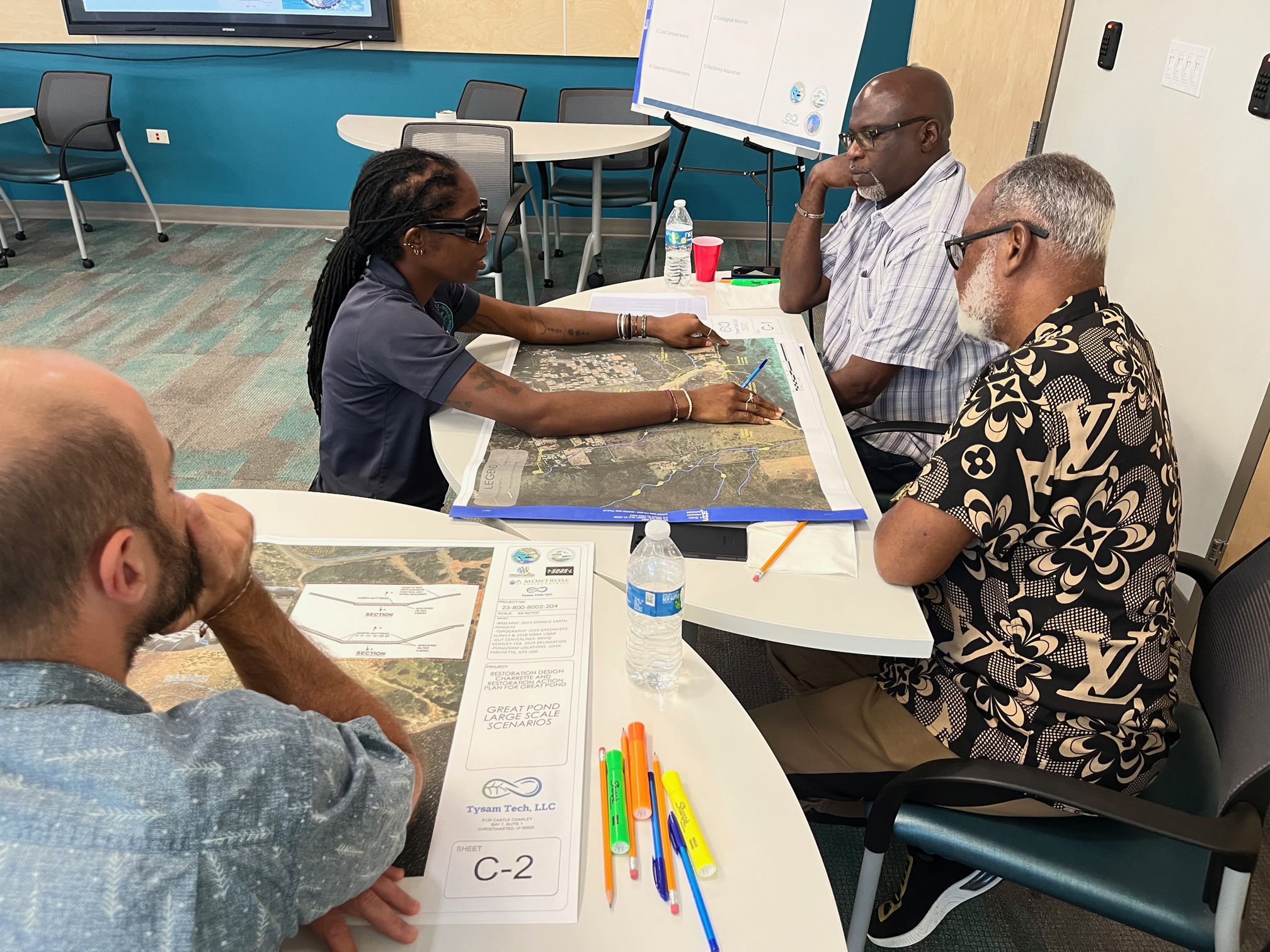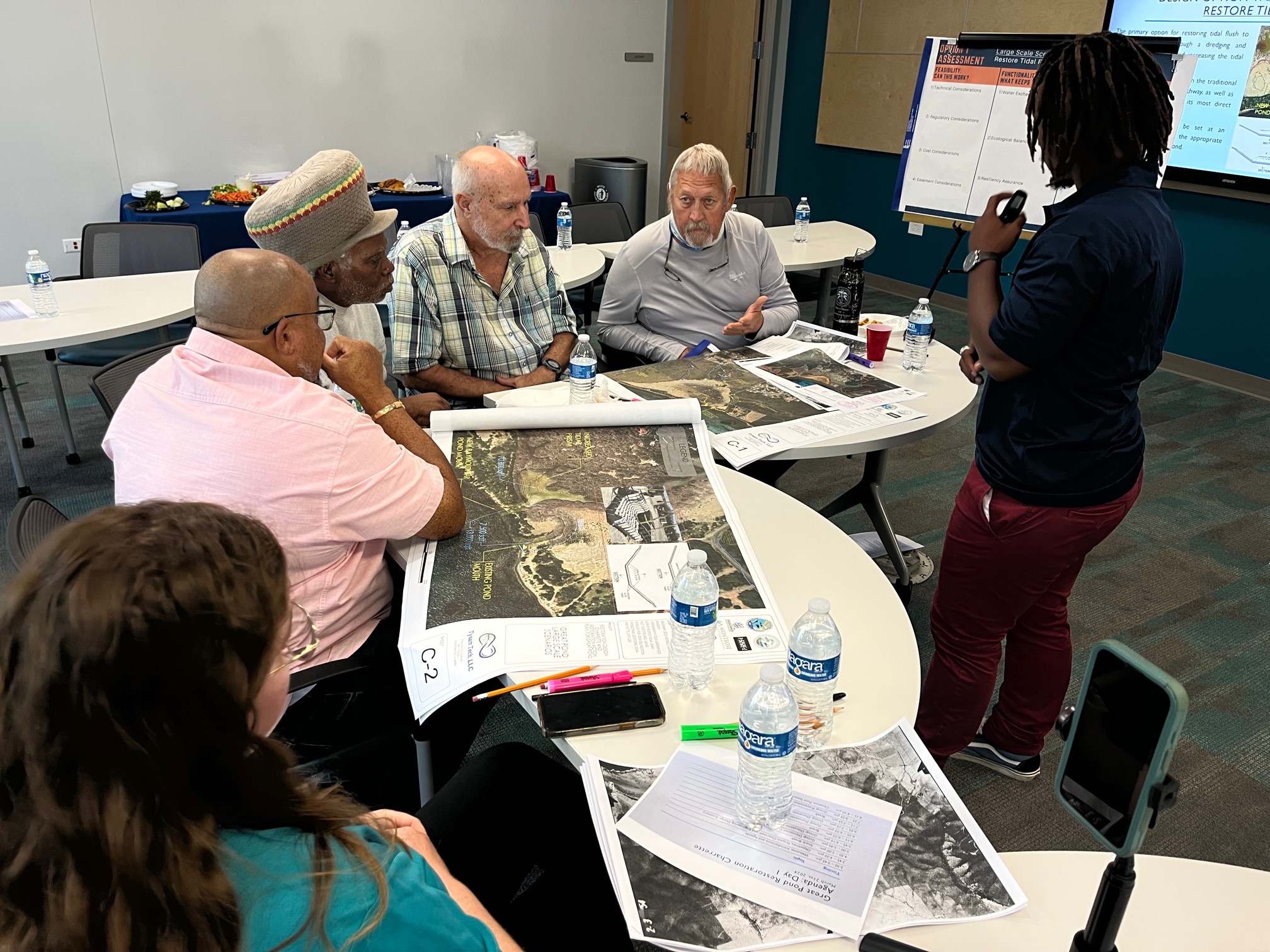
The Department of Planning and Natural Resources and environmental firm Tysam Tech, LLC held a design workshop for the future of Great Pond on Thursday and Friday at the University of the Virgin Islands Medical Simulation Center on St. Croix.
The workshops allowed the public to attend either day for an open discussion on the future of Great Pond. This is part of a four-stage process for the decision on how to, if at all, restore the pond. The four stages consist of gathering local data and knowledge, providing a greater understanding of the current conditions of Great Pond, and choosing the design options and the design.
After the introduction, the Tysam Tech, LLC team presented four design considerations for participants to decide from:
- Option 1: A large-scale scenario to restore tidal flushing. This primary option restores the tidal flush to Great Pond through dredging, widening the mouth, and increasing the tidal prism. The spillway elevation would be set at an elevation that introduces the appropriate amount of seawater to Great Pond.
- Option 2: Presented several medium-scale design scenarios and considered the project size, cost, and complexity.
1. Re-route the gutter west of Great Pond.
2. Add new pond(s) to ease runoff from Union and Mount Washington, leading to sediment retention.
3. Install a sediment basin on the north side of Great Pond and plant mangroves/mangrove associates along the pond border to help with sediment trapping before entering the pond.
- Option 3: Two small-scale design scenarios that can provide mitigation against negative impact to Great Pond on a lower level. Low-level scenarios may be easy to implement, have lower costs, or have minimal concerns for greater environmental impact.
1. Rehabilitation of existing sediment retention ponds (deepen, add stabilizing rocks and riprap)
2. Add drainage swales/dip cuts along roads to allow water to correctly route in the pond.
- Option 4: No Action. Do nothing and consider the risks and challenges that come with the other design scenarios.
Teams were then asked to divide into groups to decide what would be the best design option and why and share their input on other suggestions, if any. During the group presentations, most of the room voted toward all the options but believed option one is necessary.

One of the group presenters, Henry Tonnemacher, marine biologist, said, “It’s a two-fold solution to the problem. The problem is Great Pond is not providing habitat. We can do all we want to have it as a fish habitat and all the things we mentioned, but unless we solve the problem that caused that, it’ll be a constant maintenance.”
“Option three by itself is not going to do anything. Option three along with all three options I think we will see is the best,” he said.
Olasee Davis, environmentalist, historian and an assistant professor at the University of the Virgin Islands School of Agriculture, also participated. “The pond is extremely important when we talk about food security. It’s extremely important for the fishing industry. Not only that, but it enhances our culture. It’s a good thing what we are doing here trying to figure out how to get the pond back up. Once it’s back up on its feet, we can maintain it.”
Davis used the example of the dredging of the Charlotte Amalie harbor on St. Thomas and said, “If they can dredge the harbor, why can’t we dredge for the pond? Once you dredge a pond, you have to maintain it,” said Davis.
The next event will be a social event planned for April 12 at the DPNR East End Marine Park.





